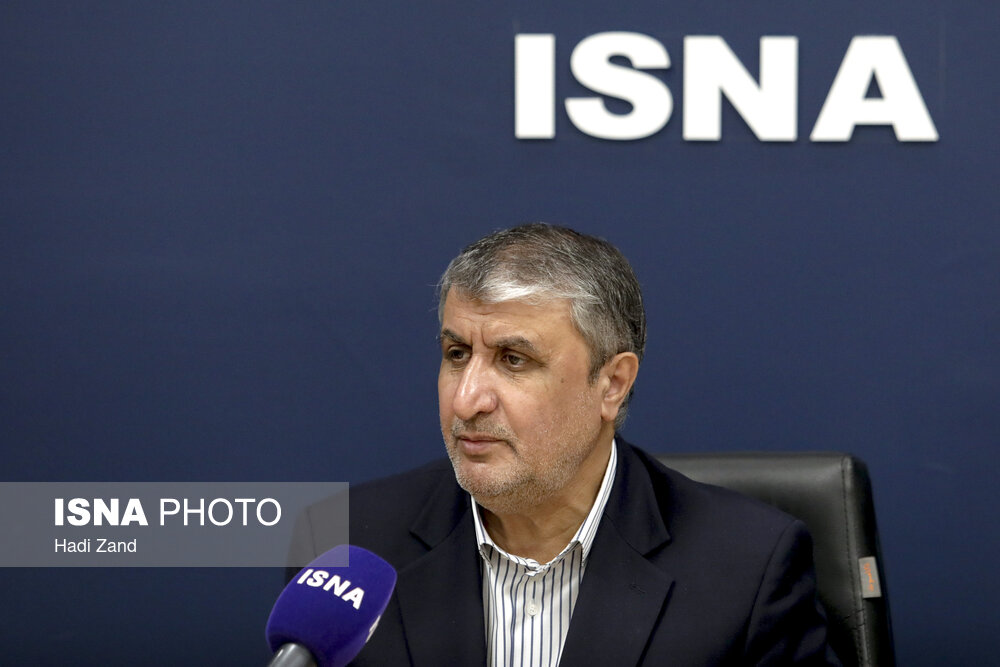Speaking in an interview with Tehran-based Ettelaat newspaper published on Saturday, Eslami stated that a December 2020 parliamentary law — dubbed the Strategic Action Plan to Counter Sanctions — was also passed with the same purpose.
He added the AEOI is enriching uranium to the purity level of 60% in accordance with the parliamentary law for different purposes, including the production of radiopharmaceuticals and detectors.
“We used 60% enriched uranium in the production of fuel plates and especially raw materials for the production of radiopharmaceuticals such as molybdenum,” the Iranian nuclear chief emphasized.
Back in December, the AEOI spokesman Behrouz Kamalvandi said Iran’s enrichment of uranium had officially reached the purity level of 60 percent in accordance with the parliamentary law seeking to accelerate the development of the Iranian nuclear program.
Under the parliament’s law, the Iranian administration is required to restrict the International Atomic Energy Agency’s (IAEA) inspections and accelerate the development of the country’s nuclear program beyond the limits set under the 2015 nuclear agreement, such as ending the voluntary implementation of the Additional Protocol to the nuclear Non-Proliferation Treaty (NPT).
Eslami further pointed to claims that Iran’s nuclear program pursues military purposes and said the AEOI’s main goal is to implement the parliamentary law which is aimed at convincing or obliging the opposite sides to “reduce the cruel economic sanctions against Iran.”
The Iranian nuclear chief added that the AEOI is carrying out its activities based on national objectives and the IAEA rules, emphasizing that the country’s nuclear work is under the UN nuclear agency’s surveillance.
He criticized the JCPOA parties for failing to remain committed to the agreement, saying, “They did not even allow others to work with the Islamic Republic.”
Asked whether the recent agreements between Iran and the IAEA contradict the nation’s parliamentary law, Eslami noted the agency insists that its cooperation with Tehran hinge on the implementation of the nuclear Non-Proliferation Treaty (NPT) and the IAEA Safeguards Agreements.
“We are fully coordinated and committed to these two axes emphasized by the agency and have had no inconsistencies according to the [IAEA] inspections,” he emphasized.
The official added that the UN Security Council has also authorized the IAEA to carry out special supervision and set limitations on Iran’s nuclear activities under the Resolution 2231, which endorses the JCPOA.
According to the law of strategic action, when none of the JCPOA signatories fulfill their obligations, “it is natural that we do not fulfill them either”, Eslami continued.
